The first couple of times I heard the words “combat accuracy”, I had to laugh.
Why is that? Because a lot of times it’s used by internet tough guys to defend their total lack of accuracy. It’s not actually a standard that they strive for.
In short, they usually can’t hit what they’re aiming at and when there’s bullets all over the target — they call it “combat accurate”.
Umm. No.
What Is Combat Accuracy?
The idea behind “combat accuracy” is an acceptable level of accuracy for combat. Makes sense right?
In combat, you’re not judged by how many times you can take precision shots into the X ring inside the 10 circle on an NRA bullseye target, you’re simply trying to get the job done.
The job you are trying to “get done” is to win the fight.
To do that, you generally have to stop the threat.
When it comes to stopping the threat, as I explained here on “Why Shot Placement Is King” — you need to hit vital zones.
What it amounts to — when aiming for “vital zones” on the human body — is roughly a 3×5 card size area in the face of an attacker, and roughly a 7″ wide by 9″ tall area in the upper chest representing the heart area.
That’s much different than trying to score the highest score on a bullseye course by being as precise as possible.
What Combat Accuracy Is Not
In short, combat accuracy is not an excuse to shoot really fast or with no control — all over the target — and think that you’re ok because being “combat accurate” or “Tactical” means you have an excuse for no accuracy.
In the words of John Mosby:
“Worse yet, in my mind, are those who have, in some circles, long pushed the concept known as “combat accuracy,” that has been equally abused. I don’t know where this concept actually originated. I do know that I first heard it used by blindly loyal advocates of “pointshooting,” as an excuse for their inability to shoot with a degree of accuracy greater than “minute of the entire fucking target.” Generally, in my experience, in the ensuing years, it has come to mean something along the lines of “well, if any of my guaranteed-lethal, buffalo-slaying, forty-something caliber bullets hit that bad guy anywhere, his damned head’s gonna blown plumb off’n his neck! I’m ‘combat accurate’ and these here rounds is guaranteed to pole-ax a gol-durned horse!””
Like John said, a lot of guys hide behind the caliber debate because they’re not good shots. This meme, to wit:
What Is An Acceptable Level of Combat Accuracy?
Besides aiming for an being able to hit the vital zones mentioned (and which you can practice with well-made humanoid targets), here’s something to think about to judge your progress …
Former Navy SEAL and current firearms trainer Kyle Defoor wrote an article talking about how 4″ is a interesting standard:
“It occurred to me the other day that the number 4 has a significant meaning in the world of shooting accuracy both with pistol and carbine. This came about after a service member emailed me from OCONUS and asked for measurements of a certain target so they could improvise making one and shoot some of my tests. I kept this under my hat for a few weeks until I could prove or disprove my theory. Ended up that my first thoughts were correct. I kept track of the group sizes of a diverse group of shooters. Obviously, all were good enough to actually be measured. So here goes-
The gold standard for pistol accuracy is the 25 yd line. The most common target at that distance is an NRA B-8 which has a 5.5″ bull. The best shooters I was around and myself routinely had a group size of right at 4 inches on that target. Even when some guys would have an awesome few rounds, they would throw one or two and the average over 3 to 5 different shoots was still 4″.
As for carbine, in my classes I use the same NRA B-8 at 100 yds for zeroing and accuracy work on short ranges. When I have a 200 yd range I go to a NRA SR-42, which has a 12″ bull. Keep in mind that pretty much all NRA tagets are based on the principle of the bull being the width of the front sight post for the weapon and distance that the target was designed for (this in itself has proven to be a huge time saving factor in training, especially for accuracy , over the years. We should all thank the guy who figured this out).
No matter the distance, either 100 or 200 on the above respective targets the normal group size again after 3-5 shoots was an average of 4 MOA (minutes of angle), which equals 4 inches at 100 yds. and 8 inches at 200 yds. Another interesting point here is that the Appleseed Shoot, which is based on the old ‘rifleman’s qurater mile’ of 500 yds is also based on 4 MOA.
As for the guns, none of them were super tricked out, just the normal combat modifications. Interestingly, even the 4 power optics like my new scope didn’t really improve the group size that much on non-accurized rifles.
So I think that this is a good standard to aim for; 4 “ group at 25 yds with a pistol and 4 MOA at either 100 or 200 yds. with your carbine.“
The idea here is that Kyle is not talking about 4MOA being the standard of precision accuracy. He’s talking about it being the standard you aim for during combat type drills. In other words, as fast as possible. (Kyle regularly posts pictures on Instagram where he achieves stuff like a 95 score on the NRA bullseye from concealment at 25 yards in 10 seconds.)
Do You Measure Up?
There you have it.
Those are some pretty good standards I think …
Can you achieve a 4″ group at 25 yards with your pistol or 4 MOA at either 100 or 200 yards with your carbine in a reasonable time?
Can you get hits on the 3×3″ or 7×9″ vital zones of a humanoid target from 3 yards to 25 yards in a reasonable time?
Or are you using the idea of “combat accuracy” as an excuse when your shots are all over the paper?





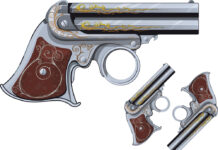

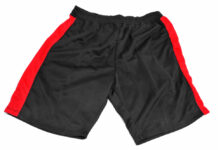
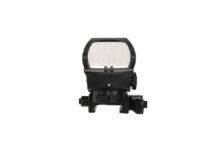
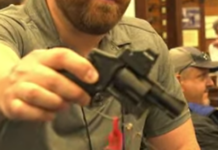
![What Level Holster Should You Be Using? [Video]](/wp-content/uploads/2024/04/Depositphotos_44548439_S-218x150.jpg)
![Case Study: Defensive Gun Use [Video] NSFW](/wp-content/uploads/2025/07/Depositphotos_282075792_S-218x150.jpg)


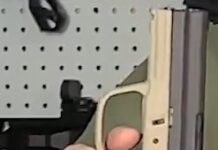
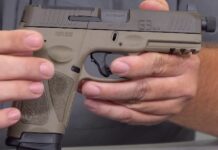

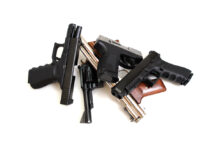
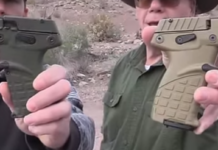


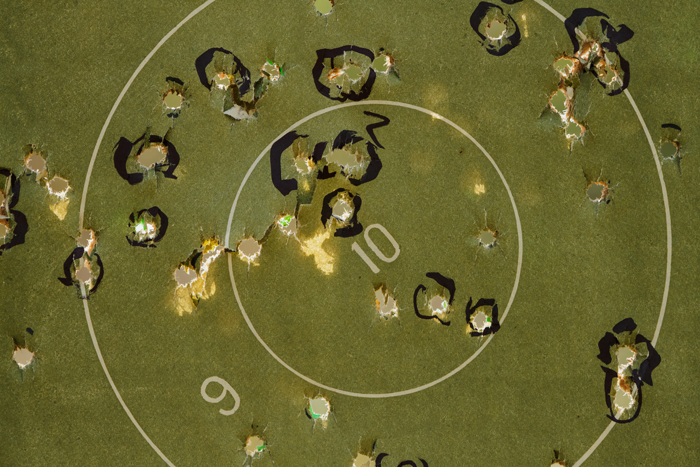
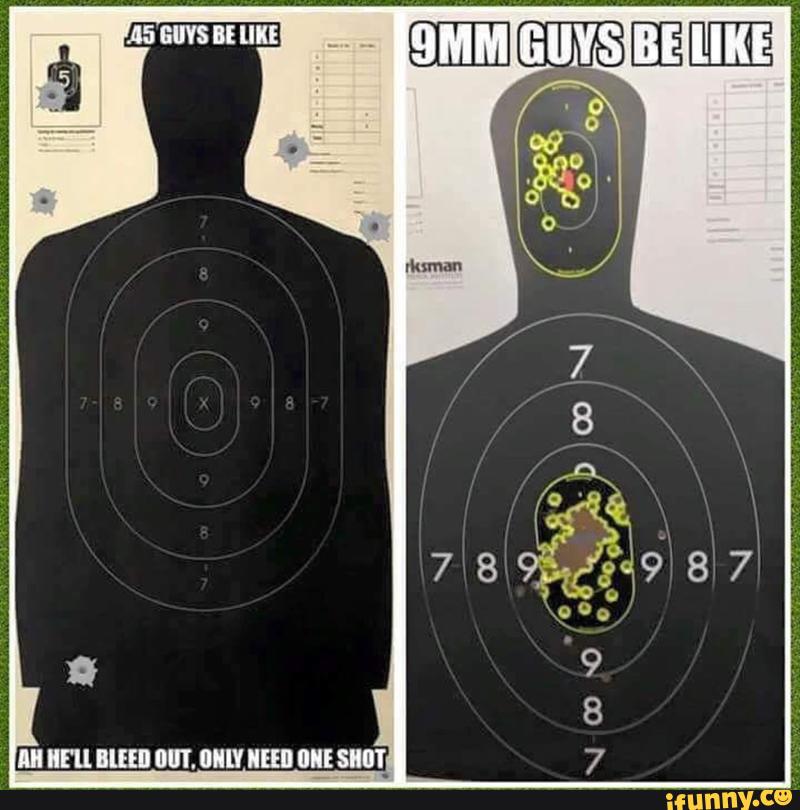










![Optic Ready vs Milled slides? [Video]](/wp-content/uploads/2024/02/image-3-100x70.png)
![[Checklist] What Gear You Need To Take Pistol, Rifle & Shotgun Training Courses [Video]](/wp-content/uploads/2023/07/Depositphotos_275087632_L-100x70.jpg)
![What is in Carter’s 2023 EDC? [Video]](/wp-content/uploads/2023/07/Depositphotos_146856137_L-100x70.jpg)
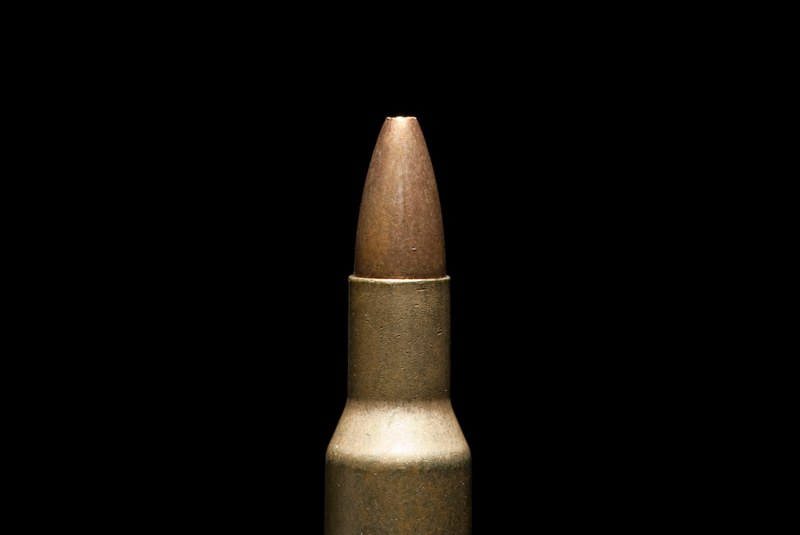
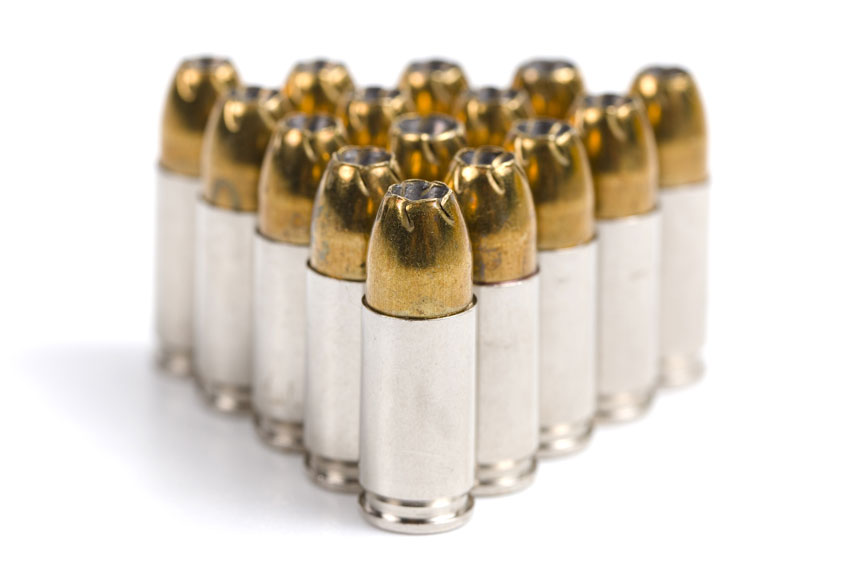
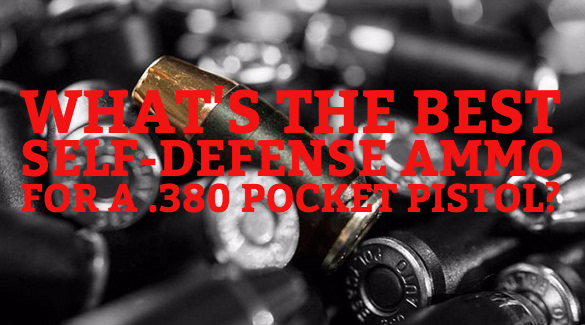
Although I can no longer do so every day, when I was practicing every day I would have considered 4″ groups substandard. Now I consider them a good day. Well written article, and sound advice. If you have the time and money for ammo, strive for minute of eye groups. That used to be my money shot when shooting against my fellow officers. We would draw an eye on the target and shoot for it, and with rifle we would shoot ground squirrels (about the size of rats for those who haven’t seen them) in the head at 50 to 75 yards. A hit any where but the head was considered a miss.
Even 3 days practice brings a good part of that back. I would suggest everyone, including myself get serious and practice at least one day a week, and more if you can. And for goodness sake, use the gun you carry. What you practice on the range will come back to haunt you in a SHTF situation.
“Combat accuracy” is absurd. If you can’t hit a target, leave your weapon home. That especially applies to croweded places where misses can kill innocent people.
Leave your weapon at home?
Now that comment is absurd.
Imagine you, a target for someone and you’ve told your pal to leave their weapon at home.
Will you be saying prayers as you die or wishing to hell that the person you told NOT to take their weapon totally ignored you.
Either way you may get shot but the gun aiming at you in anger may be slightly distracted by the lead flying past his head.
I legged out at Camp Perry in 1959 and recieved the Distinguished marksman award after a broze, silver and gold for rifle shooting.
The real issue is Glock owners shooting 9mm, looking for a way to cover up the fact cannot hit their target and cannot handle a .45. The growth of CCW’s and the fact that shooting anyone more than 25 feet away gets you arrested has a LOT to do with this too.
Oh and pats of this article are just silly. What’s the drop on an .45 at 200 meters? You can google it if you want I did. I tend to set up my defensive pistils for 100 meters or less. I’m on target or 3 inches high or less all the way out. No matter what is ALL about trigger and site alignment.
Don,
Your reading comprehension is lacking or you read too quickly and jumped to the comments. Nobody said anything about shooting at 100-200 yards with a handgun. The quoted Kyle Defoor info was talking about 4″ groups with a handgun at 25yds and 4MOA with a carbine at 100/200yds.
And I don’t even get what you’re trying to say here? “The real issue is Glock owners shooting 9mm, looking for a way to cover up the fact cannot hit their target and cannot handle a .45.” but …
Point shooting is for quick, close in work, like when a threat bounces out at you at very close range and you shoot sometimes literally from the hip. The idea that some people “point shoot” at longer distances when they have perfectly good sights is beyond me. “Combat Accuracy” may work for the “beaten zone” of a M-60 GPMG, but otherwise it is shot placement, like you said, that gets the job done.
Sorry but i carry a 40sw and 45acp pistols and my target would definitely look like the one on the right with a hell of alot less shots fired! Im sick and tired of the whole 9mm is king bs! I can shoot 40, 45, 357mag, 357sig, 10mm as accurately as i can my 9mm pistol. just sayin.. 9mm is NOT king!…
If you take down the Enemy you are “Combat Accurate”! If you don’t, then you are DEAD!!!!! How many in this Bunch has ever shit themselves??? Never been that scared? Then you know Jack Shit about Combat much less how to Kill someone! This is the Reason SOF people shoot 4 or 5 thousand rounds a week! They are “Combat Accurate”! They shoot this many rounds so that they have “Muscle Memory! They don’t have to think, they don’t have to aim! They point and shoot! AND THEY TAKE DOWN Their Target every time! This type of Training costs a lot of Time and Money! A Millionaire would go broke in a year trying to maintain this!
Don’t worry though, after maybe two weeks in combat you’ll figure it out? That’s Why we called you NFG’s in Nam!
Didn’t want to learn your name because you wouldn’t be there long!
[…] What Is An Acceptable Level of Combat Accuracy (And Do You Measure Up)? […]
To the 45/40 caliber shooters that are “offended” by this article, you have totally and completely the point. The point is not caliber…it is hitting what you aim at. I am a police firearms instructor and teach civilians as well. The most common issue that I see is people trying to shoot a gun that is too much for them; whether by choice or by force. There is a common misperception that anything less than 45/40 caliber lacks the ever-elussive myth called stopping power. The real issue is being able to hit what you aim at consistently and quickly. All too often people will seek to carry and shoot guns that they cannot control, especially under stress. Shooting takes time and practice, which in the LE arena, are both in short supply. So having a gun that people are more comfortable shooting, like the 9mm, will lead to confidence as they start to improve. Confidence will eventually lead to competence. Then the person can move to a 45 or 40. I have carried all 3 calibers during my career and never had a problem qualifying. At my agency now I have the choice of 9mm, 40 or 45, but I choose to carry and trust my life to the 9mm. Why? I can carry more bullets in the same space, it is more cost effective to train with and shoot, and when it comes to personal defense ammo, 9mm performs very well with a wound channel that is only a fraction of an inch smaller than both 40 and 45. If you prefer the 40 or 45 and you are competent with it, then there is no issue with you carrying it. Just don’t poo-poo on those who choose to carry the 9mm just because you don’t like it.
This guy gets it
Comments are closed.